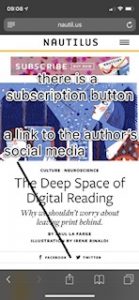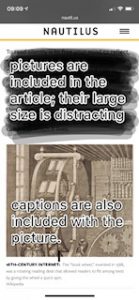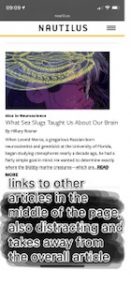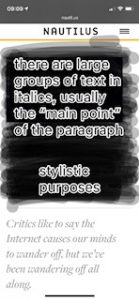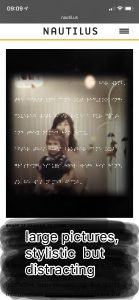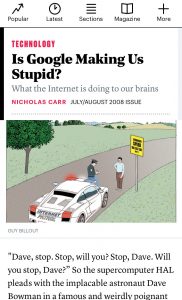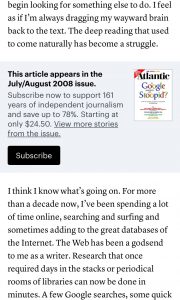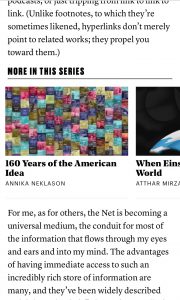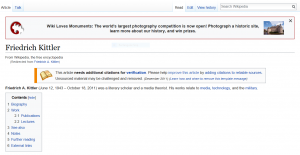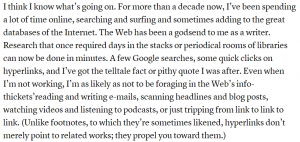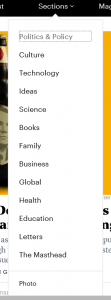The Deep Space of Digital Reading was written by the renowned essayist and novelist, Paul LaFarge. LaFarge has written many essays over the course of his literary career, and is a contributor to literary magazines such as The New Yorker and The New Republic. In addition to numerous essays, LaFarge is the author of five novels: The Night Ocean, The Artist of the Missing, Haussmann, or the Distinction, and Luminous Airplanes, and The Facts of Winter (paullafarge.com). LaFarge’s writing style differs from essay to novel, however. In his essays, LaFarge takes on a more scholarly and argumentative tone, drawing from multiple sources in order to back up his claim. By comparison, his novels have a much lighter tone, being fictitious and not drawing from factual evidence.
LaFarge has received critical acclaim for his work, and is the recipient of awards such as the Bard Fiction Prize, and fellowships from New York Foundation for the Arts, National Endowment for the Arts and the Dorothy and Lewis B. Cullman Center for Scholars and Writers at the New York Public Library (paullafarge.com)
This article contains two audiences, the primary and the secondary audience. LaFarge’s essay is largely directed to those who spend a majority of their time reading online, and those who advocate for the benefits of online reading. The title of the article is The Deep Space of Digital Reading, and this article speaks to the positives of reading online, and how “digital reading” isn’t as detrimental to our health and cognition as one would think (LaFarge,The Deep Space of Digital Reading). However, this article seems to speak to a more educated primary audience, as opposed to everybody that reads online, due to the fact that LaFarge references many other scholarly articles and essays within his own, and analyzes the work done by cognitive psychologists.
LaFarge’s secondary audiences are the literary and scientific communities, two scholarly communities who are already educated on the conventions of modern technology. Within the scientific community, there is a huge debate on whether or not the use of modern technology is harming our brains. LaFarge’s essay, backed up with cognitive studies, as well as other scientific evidence, will attract those from the scientific community. This article will likely receive attention from the literary community as well. LaFarge is an active member within the literary community, having published several books, and many more essays. This, in combination with the fact that he is taking a stance on a controversial issue in the modern world, is likely to stir up some attention.
The main claim of LaFarge’s essay is that reading online, “digital reading” is not as bad as the general populous assumes it is, and that readers who don’t like to read online shouldn’t have to worry about leaving traditional reading behind in the new age of technology. The article is largely ambiguous, offering consenting and dissenting opinions on both sides of the debate, but does lean more towards the side of pro-digital reading. The sources that LaFarge uses throughout point towards this, especially in the case of scientific and cognitive evidence. Many times throughout the article, LaFarge states that the brain is not harmed by reading online, and is, in fact, able to rewire itself to accommodate. (LaFarge, The Deep Space of Digital Reading). LaFarge also makes the claim that reading, historically, has always had its issues, and uses historical evidence to support this. He references Socrates, and his 5th century worry over whether or not writing would weaken the brain (LaFarge, The Deep Space of Digital Reading).
Generally, LaFarge seeks to reassure the general populous that reading online is not detrimental to our brain function, and to persuade those that are against online reading to consider the benefits.
Largely, this essay is LaFarge’s personal opinion on digital reading. He first draws his reader in using an example; a historical anecdote. From here, he begins to get into the topic of “digital reading”, and how the rise of technology is challenging our brains (LaFarge, The Deep Space of Digital Reading). In order to support his claim, online reading isn’t bad, LaFarge draws from many different areas of study, using anecdotal evidence, other essayists’ claims, psychological research, and even historical evidence. His writing is very well researched in this regard. However, the scientific studies he sites are from 2005, a bit outdated for the time that this article was written, in 2016. Still, the studies that he sites may be the most up-to-date or contain the most significant data.
LaFarge’s essay was published in the Nautilus, a scientific journal, in 2016.
The Deep Space of Digital Reading is in the format of an online article. However, LaFarge’s essay differs from traditional online articles, as there are no hyperlinks embedded in the text, and the website it is published on has a dropdown menu, rather than a series of links in the header. This article is written as if it had been published in a newspaper, rather than being published online. With that being said, though, there are clearly digital aspects of the article. Underneath the title is an interface where the reader can comment on the article, or share the article on social media platforms. The Deep Space of Digital Reading also features many stylistic features, such as differing font size and italics, which would not be possible on print. While no hyperlinks are included within the article, The Deep Space of Digital Reading does feature advertisements of other articles in the middle of the page, as well as at the end of the article.
